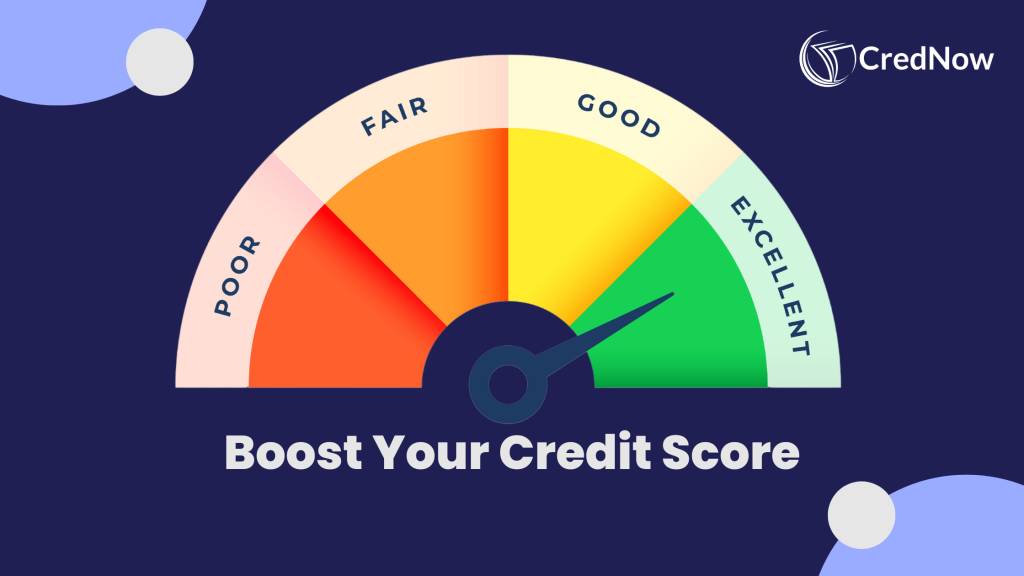In India, having a good credit score is crucial when applying for a loan, whether it’s for a home, car, or personal needs. A high credit score not only increases your chances of loan approval but also helps you secure better interest rates and favorable terms. If you’re planning to apply for a loan soon, it’s essential to understand how to improve your credit score beforehand. In this guide, we’ll explore actionable tips to help you boost your credit score, ensuring that you’re in the best possible position when applying for credit.
Understanding your credit score
Before diving into the strategies on how to improve your credit score, it’s important to understand what a credit score is and how it’s calculated. In India, credit scores typically range from 300 to 900, with a score above 750 considered excellent. Your credit score is determined by several factors, including your payment history, credit utilization, length of credit history, types of credit, and recent credit inquiries.
Here’s a quick breakdown of these factors:
- Payment History: Timely payments on your credit cards, loans, and other debts positively impact your credit score.
- Credit Utilization: This refers to the ratio of your current credit card balances to your total credit limit. Keeping this ratio low is crucial for a good credit score.
- Length of Credit History: The longer your credit history, the better it is for your score.
- Types of Credit: A mix of credit types (credit cards, personal loans, home loans, etc.) can positively influence your score.
- Recent Credit Inquiries: Applying for too many loans or credit cards in a short period can negatively impact your score.
Must Read: How to maximize credit card rewards
Now that you understand the basics, let’s explore how to improve your credit score before applying for a loan.
1. Check your credit report regularly
The first step in improving your credit score is to check your credit report regularly. You can obtain your credit report from credit bureaus like CIBIL, Equifax, or Experian. Reviewing your credit report allows you to identify any errors or discrepancies that might be dragging down your score.
Actionable tip: If you spot any errors, such as incorrect personal information, unrecognized accounts, or wrongly reported late payments, immediately raise a dispute with the credit bureau to have them corrected.
2. Pay your bills on time
One of the most critical factors in determining your credit score is your payment history. Late payments, even by a few days, can significantly lower your score. To improve your credit score, make sure you pay all your bills on time, including credit card bills, loan EMIs, utility bills, and any other recurring payments.
Actionable tip: Set up payment reminders or automate your bill payments to ensure you never miss a due date. Even a single missed payment can have a lasting impact on your credit score.
3. Reduce your credit card balances
High credit card balances relative to your credit limit can negatively impact your credit score. This is known as credit utilization, and keeping it below 30% is crucial for a good score. For instance, if your credit limit is INR 1,00,000, try to keep your outstanding balance below INR 30,000.
Actionable tip: If you have high balances on your credit cards, focus on paying them down as quickly as possible. Consider using any extra funds, such as bonuses or tax refunds, to reduce your outstanding credit card debt.
4. Avoid applying for new credit cards or loans unnecessarily
Every time you apply for a new credit card or loan, the lender conducts a hard inquiry on your credit report, which can temporarily lower your credit score. While a single inquiry might not have a significant impact, multiple inquiries in a short period can hurt your score.
Actionable tip: Avoid applying for new credit unless absolutely necessary, especially in the months leading up to your loan application. If you’re trying to improve your credit score, it’s best to focus on managing your existing credit responsibly.
5. Increase your credit limit (But don’t use it)
Requesting a credit limit increase on your existing credit cards can help improve your credit utilization ratio, which in turn can boost your credit score. However, it’s important to resist the temptation to spend more just because you have a higher limit.
Actionable tip: Contact your credit card issuer to request a credit limit increase. If approved, maintain your current spending levels to lower your credit utilization ratio.
Also Read: Smart tips to use a credit card wisely
6. Diversify your credit portfolio
Having a mix of different types of credit, such as credit cards, personal loans, and home loans, can positively impact your credit score. However, this doesn’t mean you should take on debt you don’t need. Instead, manage your existing credit responsibly to show that you can handle different types of credit.
Actionable tip: If you only have credit card debt, consider taking a small personal loan and repaying it on time. This can add variety to your credit profile and improve your score.
7. Keep old credit accounts open
The length of your credit history plays a role in your credit score, so it’s generally a good idea to keep older credit accounts open, even if you’re not using them regularly. Closing old accounts can shorten your credit history and negatively impact your score.
Actionable tip: If you have an old credit card that you no longer use, keep the account open and make a small purchase every few months. Pay off the balance in full to keep the account active and maintain a positive credit history.
8. Negotiate with lenders
If you’re struggling to make payments or have had a late payment in the past, consider contacting your lender to negotiate terms. Some lenders might be willing to offer a temporary reduction in interest rates or allow you to restructure your loan to avoid further late payments.
Actionable tip: Be proactive and reach out to your lender as soon as you anticipate difficulty in making payments. Timely communication can sometimes prevent negative marks on your credit report.
9. Monitor your credit utilization ratio
Even if you have multiple credit cards, it’s important to monitor your overall credit utilization ratio. Consolidating balances or distributing them evenly across your cards can help manage this ratio more effectively.
Actionable tip: If you have multiple credit cards, consider transferring balances to lower-utilization cards to evenly distribute your debt. This can help improve your overall credit utilization ratio.
10. Stay patient and consistent
Improving your credit score is not an overnight process; it requires patience and consistent effort. It may take a few months for positive changes to reflect in your credit score, so stay disciplined and continue practicing good credit habits.
Actionable tip: Regularly check your credit score to monitor your progress. Celebrate small improvements and stay motivated to continue working towards a higher score.
Conclusion
Knowing how to improve your credit score is crucial for anyone planning to apply for a loan in India. By taking proactive steps to manage your credit responsibly, you can boost your score and increase your chances of securing a loan with favorable terms. Remember, a good credit score not only helps with loan approval but also saves you money in the long run by qualifying you for lower interest rates.
Start by checking your credit report, paying your bills on time, and managing your credit utilization. With consistent effort and careful financial management, you can significantly improve your credit score and achieve your financial goals.

FAQs
1. How long does it take to improve my credit score before applying for a loan?
Improving your credit score is a gradual process that typically takes a few months. The exact time depends on your current credit situation and how quickly you can implement positive changes, such as paying off debts, reducing credit utilization, and making timely payments.
2. Will checking my credit report frequently hurt my credit score?
No, checking your own credit report is considered a soft inquiry and does not affect your credit score. In fact, regularly reviewing your credit report can help you identify and correct any errors that might be negatively impacting your score.
3. How much of my credit card balance should I pay off to improve my credit score?
To improve your credit score, aim to keep your credit utilization ratio below 30%. This means you should pay off enough of your credit card balance so that your outstanding balance is less than 30% of your total credit limit.
4. Can closing old credit card accounts hurt my credit score?
Yes, closing old credit card accounts can hurt your credit score because it reduces the length of your credit history and can increase your credit utilization ratio. It’s generally better to keep old accounts open, especially if they have a long history of on-time payments.
5. Is it better to pay off all my debt at once or gradually to improve my credit score?
While paying off debt gradually can help demonstrate consistent, responsible credit behavior, paying off all your debt at once can also improve your credit score, particularly if it significantly reduces your credit utilization ratio. However, make sure to continue using your credit responsibly to maintain a positive credit history.



